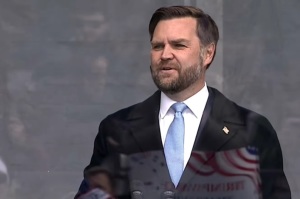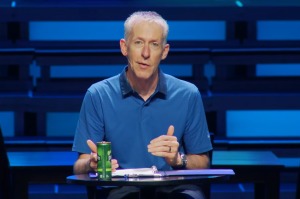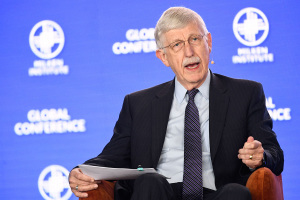No Age Restriction for Morning-After Pill, Judge Rules
A federal judge in New York ordered the U.S. Food and Drug Administration on Friday to make the Plan B emergency contraceptive pill available to young teens and girls without a doctor's prescription. The White House promptly responded by saying the age restriction was the "right common-sense approach."
While today's women need to prove at the pharmacy they are 17 or older to be able to buy the morning-after pill, U.S. District Judge Edward Korman for the Eastern District of New York ruled Friday that women of any age should be able to buy emergency contraception without a doctor's prescription, according to The Associated Press.
President Barack Obama had supported a 2011 decision by Health and Human Services Secretary Kathleen Sebelius setting age limits for Plan B One-Step and its generic versions, which can prevent pregnancy if taken soon enough after unprotected sex. Obama had then supported Sebelius, saying she acted because she wasn't sure that an 11-year-old "should be able, alongside bubble gum or batteries…to buy a medication that potentially, if not used properly, could end up having an adverse effect."
Korman, too, acknowledged that the case was controversial, as "it involves access to emergency contraception for adolescents who should not be engaging in conduct that necessitates the use of such drugs," but he called Sebelius' decision "politically motivated, scientifically unjustified and contrary to agency precedent."
Justice Department spokeswoman Allison Price said Friday that the decision of whether to appeal would be taken soon. "The Department of Justice is reviewing the appellate options and expects to act promptly," she said.
White House spokesman Jay Carney said Friday the president hasn't changed his position. "He believes it was the right common-sense approach to this issue," Carney said.
The Family Research Council expressed "serious concerns" regarding the court ruling.
"This ruling places the health of young girls at risk. Making Plan B available for girls under the age of 17 without a prescription flies in the face of medical information and sound judgment," said Anna Higgins, director of the Center for Human Dignity at the FRC, in a statement. "I am very troubled that the court has not fully taken into account the concerns expressed by HHS Secretary Kathleen Sebelius and many public health advocates that there is not enough data on the health effects of Plan B on young girls."
The court order was in response to a lawsuit filed by the Center for Reproductive Rights in 2005. "More than twelve years have passed since the citizen petition was filed and eight years since this lawsuit commenced," Korman wrote. "The FDA has engaged in intolerable delays in processing the petition. Indeed, it could accurately be described as an administrative agency filibuster."
"Today science has finally prevailed over politics," Nancy Northrup, president and chief executive of the liberal advocacy group, said in a statement. "This landmark court decision has struck a huge blow to the deep-seated discrimination that has for too long denied women access to a full range of safe and effective birth control methods."
The morning-after pill contains a higher dose of the female progestin hormone – to prevent ovulation or fertilization of an egg – than is in regular birth control pills. However, if a woman already is pregnant, the pill has no effect.
About 19.7 million new sexually transmitted infections were reported in 2008, according to the Centers for Disease Control. Based on the CDC's estimates, that brings the total number of STIs in the country to just over 110 million, and most of the new cases crop up in young men and women aged between 15 and 25. "Making Plan B available over-the-counter for any age will put many of these young girls at further risk because it circumvents necessary medical screening for sexually active girls," Higgins said.
There is also a real danger that "Plan B may be given to young girls, under coercion or without their consent," Higgins added. "The involvement of parents and medical professionals act as a safeguard for these young girls. However, today's ruling removes these commonsense protections."
However, some see the morning-after pill as a way of reducing teenage pregnancy.
The New York City Department of Education last year decided to make the morning-after pill available without parental consent to high school teenage girls as young as 14, at 13 public schools, expanding a program that began in 2011.
Bill Donohue, president of the Catholic League, then told The Christian Post that the decision was "the kind of imperial edict that demands a lawsuit."
"Whenever it comes to sensitive issues such as sexuality, the government must always play an ancillary role to that of parents," he said. "The provision that parents can opt out smacks of governmental arrogance and must be resisted: the government has no business eclipsing parental rights."



























